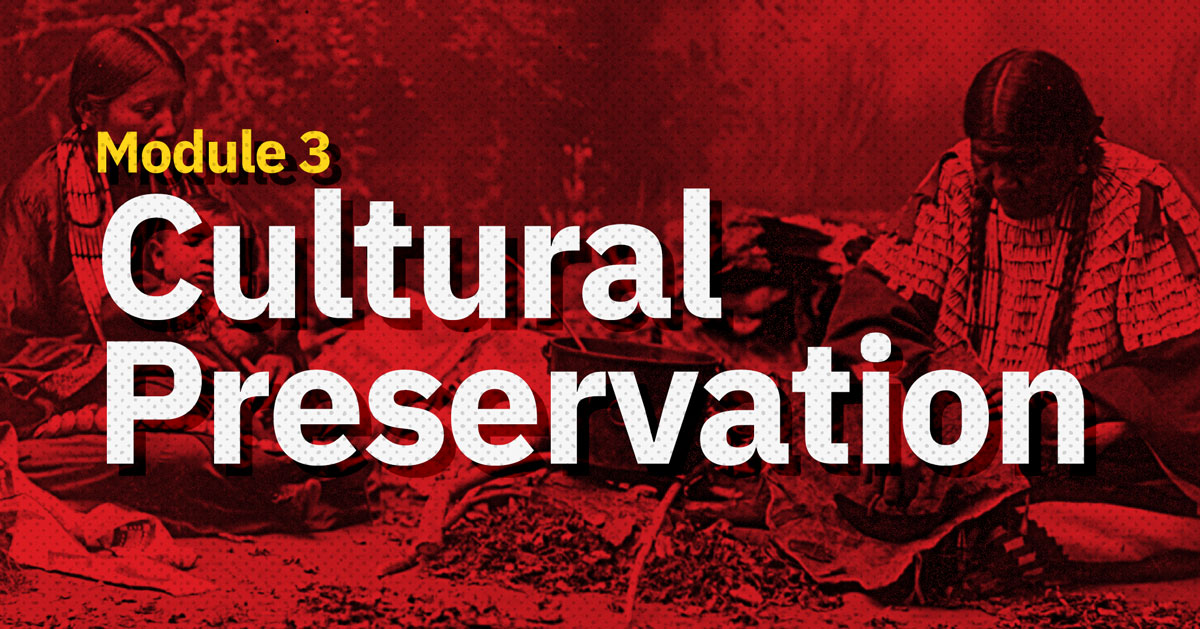
Module 3: Cultural Preservation
Lesson Overview
- Can a community preserve its culture while embracing modernization?
- Identify cultural traditions that Indigenous and rural communities hold.
- Analyze primary- and secondary-source documents to engage in a civil-discourse model.
- Participate in a Paideia Seminar to gain a fuller understanding of how culture and traditions have shaped the lives of generations of rural and tribal communities.
- Students demonstrate their understanding of cultural preservation, and why it is important to preserve Indigenous and rural traditions and customs.
- Students will explore cultural ties to food and the land that Indigenous and rural Americans are striving to preserve for future generations.
- Students will explore cultural ties to crafts, language, and the arts that Indigenous and rural Americans are striving to preserve for future generations.
- Students will participate in a Paidea seminar and report their observations to their teacher and to the class.
- Teachers may assess by using the Assessment Rubric.
Students will participate in self-reflection by completing the Inquiry Reflection Tool.
- Active listening
- Analyzing evidence
- Civic engagement
- Civic identity
- Civic mindedness
- Civic responsibility
- Close reading
- Collaboration
- Critical thinking
- Empathy
- Open mindedness
- Patience
- Respectful communication
- Self-reflection
- Social awareness
- Active listening
- Analyzing evidence
- Civic engagement
- Civic identity
- Civic mindedness
- Civic responsibility
- Close reading
- Collaboration
- Critical thinking
- Empathy
- Open mindedness
- Patience
- Respectful communication
- Self-reflection
- Social awareness
*Note: This SEL focus will be further articulated in alignment with the lesson below*
Center for Civic Education
We the People: The Citizen & the Constitution (Level 2)
- Unit 5, Lesson 27: How does the Constitution protect the right to due process of law?
Educating for American Democracy Roadmap
Theme 3: We the People:
- Evaluate the extent to which marginalized groups have won incorporation into “the people” and advanced the shared values and principles of the U.S.
Theme 7: A People with Contemporary Debates & Possibilities:
- Understand how fundamental American principles—and continuing debates about them—shape current policy debates
College, Career, and Civic Life (C3) Framework
- D2.Eco.1.9-12. Analyze how economic decisions affect the well-being of individuals, businesses, and society.
Common Core Standards for Literacy in Social Studies
- CCSS.ELA-Literacy.RI.8.3: Analyze how a text makes connections among and distinctions between individuals, ideas, or events (e.g., through comparisons, analogies, or categories).
CCSS.ELA-Literacy.RI.8.7: Evaluate the advantages and disadvantages of using different mediums (e.g., print or digital text, video, multimedia) to present a particular topic or idea.






